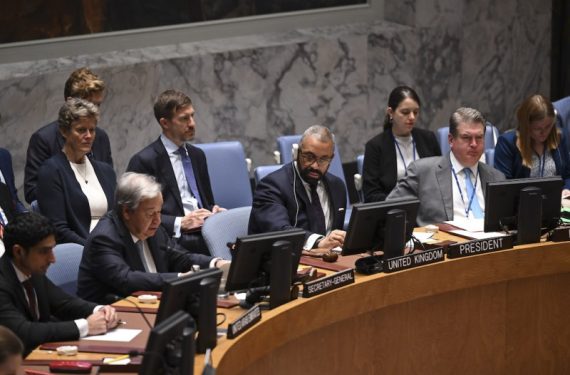I
n a decision aimed at fostering global collaboration on artificial intelligence (AI), the United Nations General Assembly overwhelmingly endorsed a resolution promoting safe, secure, and trustworthy AI systems for sustainable development. Spearheaded by the United States, the resolution garnered unanimous support from all 193 member states during the assembly’s session held on Thursday.
The resolution represents a landmark effort to bridge the digital divides both between and within countries, with a specific focus on leveraging AI to accelerate progress towards achieving the 2030 Agenda for Sustainable Development. It emphasizes the importance of developing regulatory and governance frameworks to ensure the safety, security, and trustworthiness of AI systems.
Addressing reporters at a news conference, Linda Thomas-Greenfield, the US envoy to the UN, underscored the resolution’s significance in promoting capacity building and closing digital divides. She emphasized the potential of AI to contribute to various facets of global development, including poverty alleviation, environmental protection, and the creation of a more equitable world.
A historic step
U.S. National Security Advisor Jake Sullivan hailed the resolution as a historic step towards fostering safe and secure AI systems. He highlighted the framework outlined in the resolution, which emphasizes fair access, risk management, privacy protection, and the prevention of misuse and discrimination in AI applications.
While the resolution is non-binding and lacks an enforcement mechanism, its unanimous adoption signifies a crucial milestone in establishing global norms for AI governance. The resolution follows months of negotiations among numerous countries and reflects a growing consensus on the need for international collaboration in regulating AI.
Despite the resolution’s focus on civilian applications of AI, discussions on the military use of AI were deliberately excluded from the scope of the resolution. According to US officials, ongoing diplomatic and multilateral conversations are addressing military applications of AI in other forums.
As the world tries to understand the transformative potential of AI, the resolution represents a collective effort by the international community to ensure that AI technologies are developed and deployed responsibly, respecting human rights and international law. Moving forward, continued collaboration will be essential to address emerging challenges and harness the full potential of AI for sustainable development.
Sources: Anadolu Agency, Foreign Policy
Recommended





